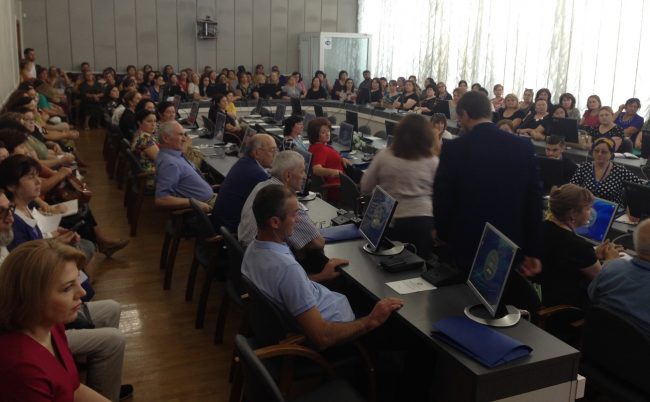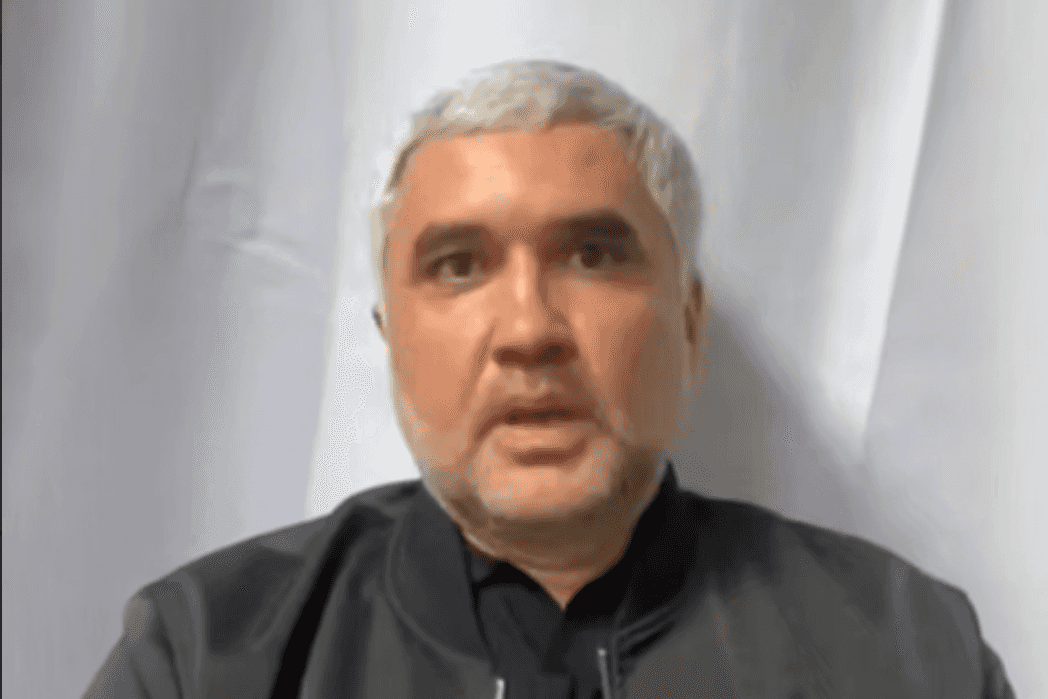

 A conference took place in Nalchik, the capital of Kabardino-Balkaria, on Sunday on the preservation of the Circassian language. Participants voiced a hope that a long-running issue over the creation of a single alphabet for East and West Circassian, the language’s two primary dialects, could soon be resolved.
A conference took place in Nalchik, the capital of Kabardino-Balkaria, on Sunday on the preservation of the Circassian language. Participants voiced a hope that a long-running issue over the creation of a single alphabet for East and West Circassian, the language’s two primary dialects, could soon be resolved.
The conference was organised by the International Circassian Association and the Kabardino-Balkarian State University, with more than 200 academics from Russia, Europe, and the Middle East attending. The main issue discussed was the unification of the West Circassian (also known as Adyghe) and East Circassian (Kabardian) scripts.
One of the conference organisers, Aminat Shogenova from the Kabardino-Balkarian State University, told OC Media that participants called for the creation of a joint working group to develop unified standards for Circassian, as well as common textbooks.
‘We do not say that we need to change the entire alphabet, we say that we need to come to a single alphabet, with consideration of the grammatical features of [both dialects]’, she explained.
Another of the organisers, Murat Tabishev from Kabardino-Balkaria’s Ministry of Education, told OC Media that the literary East and West Circassian languages emerged during the Soviet period after the Circassian people were divided into three territorial entities — Kabardino-Balkaria, Karachay–Cherkessia, and Adygea.
He added that in reality, East and West Circassian were dialects of one language, but with the establishment of administrative borders between the territories, they became standardised independently of each other.
West Circassian enjoys official status in Adygea, while East Circassian is used in Karachay–Cherkessia and Kabardino-Balkaria.
Calls for a ‘speedy resolution’
In September 2016, at the 11th Congress of the International Circassian Association in Nalchik, Kabardino-Balkaria’s head, Yury Kokov, suggested they ‘work hard to create a single Circassian script’.
Tabishev said that this helped in organising the event, but that ‘scholars have been working on the problem of unification and related issues for a long time already’.
At a meeting of the International Circassian Association in Ankara in July, members of the Circassian diaspora abroad called for a more speedy resolution of the long-running alphabet issue.
Kabardino-Balkaria’s parliament adopted a law designed to create a unified alphabet in 2002. Since then, scholars from Kabardino-Balkaria, Karachay–Cherkessia, Adygea, and the diaspora have worked on agreeing a single standard.
According to Aminat Shogenova from the Kabardino-Balkarian State University, the West Circassian side initially reacted negatively to the initiative, and so the law did not yield results.
According to Tabishev, scholars from Kabardino-Balkaria and Karachay–Cherkessia have now asked the head of Adygea, Murat Kumpilov, to accelerate the work at the Adygean State Institute of Humanitarian Studies. ‘As far as I know, a general agreement from the Adygean side has already been received’, he added.
Tabishev said that scholars from Kabardino-Balkaria and Karachay–Cherkessia ‘have already taken the first steps, and now Adygea should also speak up’. The International Circassian Association plans to hold the first international Circassian conference on 21–22 September in Nuremberg, Germany, under the motto ‘What unites us’.
‘An attack on national identity’
A number of school teachers at the conference expressed concern about recent amendments to Russia’s law ‘On Education’, adopted by the State Duma on 25 July, regarding the teaching of indigenous languages in Russian schools. The changes mean that learning indigenous languages in Russia’s regions cannot be compulsory.
But Tabishev insisted that even after the amendments, ‘the number of hours spent teaching native languages in schools in Kabardino-Balkaria, Karachay–Cherkessia, and Adygea remains the same’.
[Read from our partners at oDR: How Russian state pressure on regional languages is sparking civic activism in the North Caucasus]
The amendments were sharply criticised by a number of diaspora groups in Turkey.
In August, over 100 Circassian, Chechen, Ossetian, and Kazan and Crimean Tatar diaspora groups in Turkey signed an appeal in defence of indigenous languages in Russia.
The appeal called for all possible legal mechanisms to be used to preserve the languages of the peoples of Russia and demanded Russia’s Constitutional Court repeal the amendments.
The groups also expressed their intention to address the UN, Council of Europe, and other international organisations. According to them, the amendments were ‘an attack on national identity and assimilation’.
On 23 July, linguists from several leading universities and research institutes in Finland, Estonia, Hungary, Sweden, Norway, Italy, Denmark, and other countries spoke out against the law.









